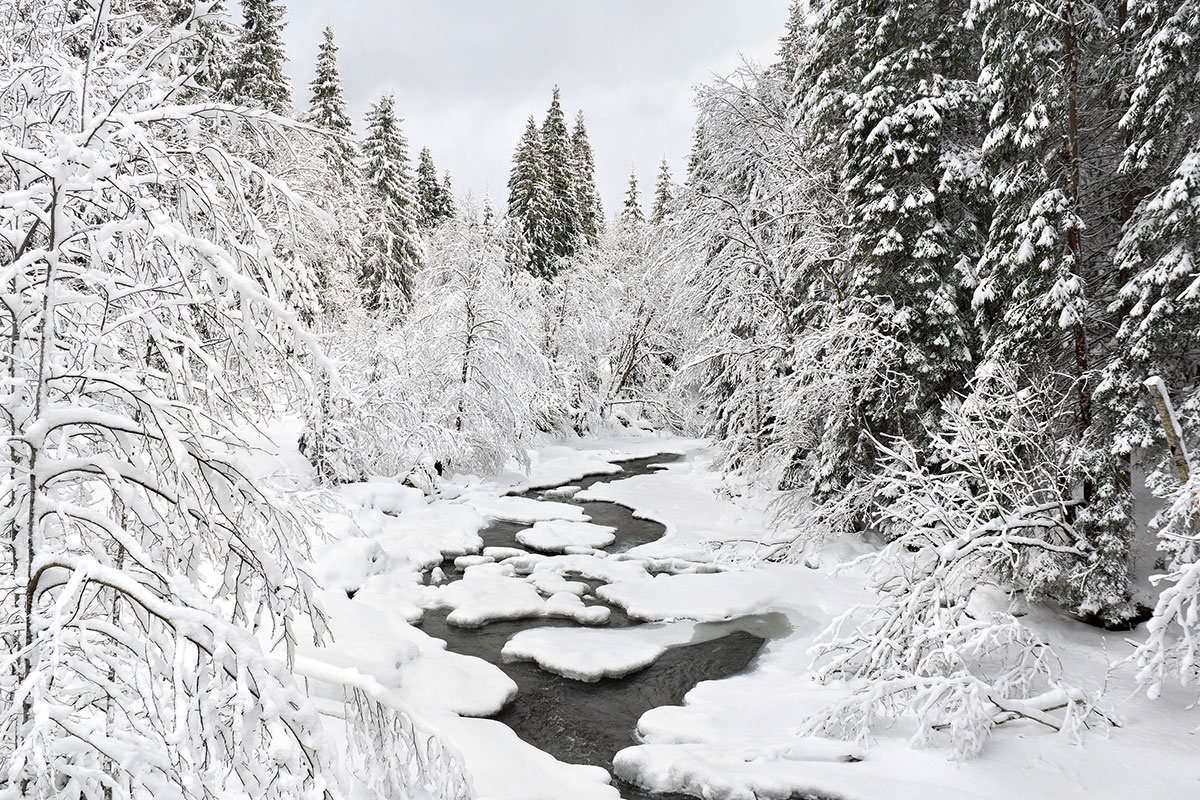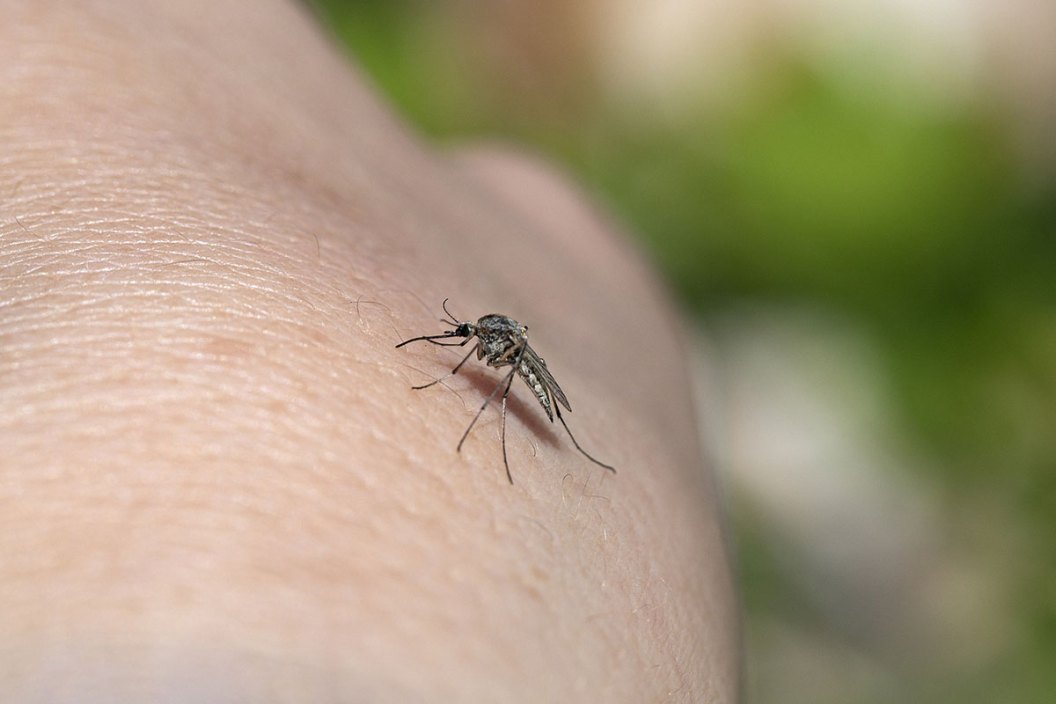Where do all the mosquitoes go, and why do they (have to) come back?
It seems as obvious as the coming winter itself that all the bugs will disappear in the horrendous cold of snow season, not to be seen or heard from again until spring, but how the heck do they survive?
Not only survive, but show up with a voracious appetite for all things human and warm blooded!
It wasn't all that long ago, the winter of 2014 for instance, that the cold was so harsh and lasted so long that we all might have seen at least one light at the end of the tunnel: a spring where the bugs weren't nearly as bad as in years past.
But hold on one moment, you bookworm of the biting bug.
Unfortunately, most of these bloodthirsty little varmints are likely to make it through the winter, depending on several factors. These include what type of these insects are in your area, how cold it gets in your region, and whether or not you get a lot of snow. For hunters and other outdoor-loving folks this can be the difference between sitting for the day during the spring turkey season, or sitting for an hour and giving up.
Hikers, campers, bicyclists, and anglers everywhere have been asking the same questions for generations: why don't they just die like good little bugs?
Cold Weather and Insects

Not every insect dies just because of weather or cold temperatures. And noticing the difference between one season and the next isn't simple.
Let's make a quick list of the other little fiends that gnaw, munch, and basically bite us to pieces:
- Fleas
- Deer Flies
- Mosquitoes
- Ticks
- Horse Flies
- Midges
- Chiggers
- Stable Flies
- Black Flies
Of course, the mosquito and the tick are the two savages that we concern ourselves with the most since they never seem to give up. The biggest concern over these two is the diseases that they can carry and spread to human beings. Each carries its own deadly sort of "toxic waste" to the table.
While many insects including these two heinous creatures do in fact die, many of them and their progeny live on, although they have differing ways of doing so. Ticks, like many crawling insects, are especially adept at burrowing under the leaf litter and other plant debris in forested areas to escape the cold, particularly when there is a good amount of snow.
Mosquitoes are famous for living, surviving, and breeding in harsh conditions. Folks from Alaska to Siberia can attest to needing head nets and other gear in the spring to escape certain types of mosquitoes. And a cold snap doesn't seem to do much.
Susan Paskewitz, the chair of the Department of Entomology at the University of Wisconsin Madison told Popular Science that, "In the winter months you don't have to worry about the mosquitoes at all. But if we do get some warm days, watch out for ticks—they can warm up fast."
Paskewitz added,
"Even though they have these mechanisms that protect them, they don't go into hibernation, and they won't be quiescent for a long period of time. As soon as it gets warm, they'll be right back out there looking for a source of a blood meal."
Mosquitoes have another mechanism that gives them an unfair advantage: when the temperature grows colder, a biochemical process replaces some of the water in the mosquito's body with glycerol, which acts just like an antifreeze. According to Indiana University, this "reduces ice formation within the mosquito's cells, so that water hardens like glass but doesn't form ice crystals that can then damage the cells," and worse, "glycerol promotes supercooling, which lowers the temperatures at which fluids freeze within the insect's body by several degrees. This enables the insect to survive at temperatures below the freezing point of water."
Mosquitoes also hide in the leaf litter, but can also get under the bark of trees and inside the walls of buildings. This way, they're already there when the temperatures rise and spring begins meaning that the only thing they are missing is you and I.
Mosquito Activity
This is a question that doesn't need an answer as most sportsmen understand quite well when these nasty little buggers are most active, but it pays to know their peak cycles and their down cycles. Some mosquito species go into a form of hibernation in winter known as diapause, which gives them a chance to survive the winter.
In spring and summer, higher temperatures and wet weather have them buzzing and biting like no one's business, but if you can stand it they don't stay as active outside dawn and dusk, or the direct sun. The middle of the day, away from water sources, is your best bet if you're trying to avoid them.
In the fall, dropping temps mean fewer mosquitoes and many will die or begin to hibernate. In the northern states and Canada, outdoorsmen and women can generally see a respite by August, and real relief around Labor Day.
Depending on where you live, the winter can be mosquito free or just waiting to happen when the days get warmer in some southern states. The spring can be a crap-shoot as some ares warm faster than others. Here in New York we can usually get through the first weeks of spring turkey season in May, but by then end of the month it can be almost impossible to sit for long without getting eaten alive.
Top 5 Methods to Keep Mosquitoes Off
- As much as you may not want to, use the chemical weapons: DEET, Picaridin, PMD, or IR3535 insecticide.
- Try natural repellents: Lemon eucalyptus oil, lavender, or cinnamon oil among others.
- Wear light colored clothing when possible.
- Avoid prime time for mosquitoes: dawn and dusk. It's tough to think of giving up early season hunting or fishing, but it's the truth.
- Be less appealing: sometimes sweating will attract sketers, but some folks—particularly those with type O blood—just seem to get bitten more.
Mosquito Problems Around the House and Yard
Fast fact: Only the female mosquito bites to obtain blood. The female mosquito may live as long as three weeks during the summer (less if we swat them) or several months as they overwinter in order to lay eggs the following spring.
In order to maintain some semblance of mosquito control, we must try to eliminate any unnecessary standing water once the warmer weather arrives. Adult mosquitoes need these conditions to thrive during their life cycle once they lay eggs and the larvae develop.
Some of the most overlooked areas female mosquitoes love are bird baths, outdoor flower pots, and gutters. Once mosquito season is in full swing due to warm weather, certain species of mosquitoes such as the culex can carry diseases such as West Nile and the newer Zika virus.
Here is where pest control is of the utmost importance,. However, for outdoorsmen who live for the pursuit of fish and game in natural surroundings, it's not only impossible to control these insects, but trying to could possibly affect our experiences in more ways than one. The only recourse is prevention.
Looking for a little more or even hot lunch for your hunting blind? Follow my webpage, or on Facebook and YouTube.
NEXT: STINK BUGS: WHAT THEY ARE AND HOW TO GET RID OF THEM
WATCH




